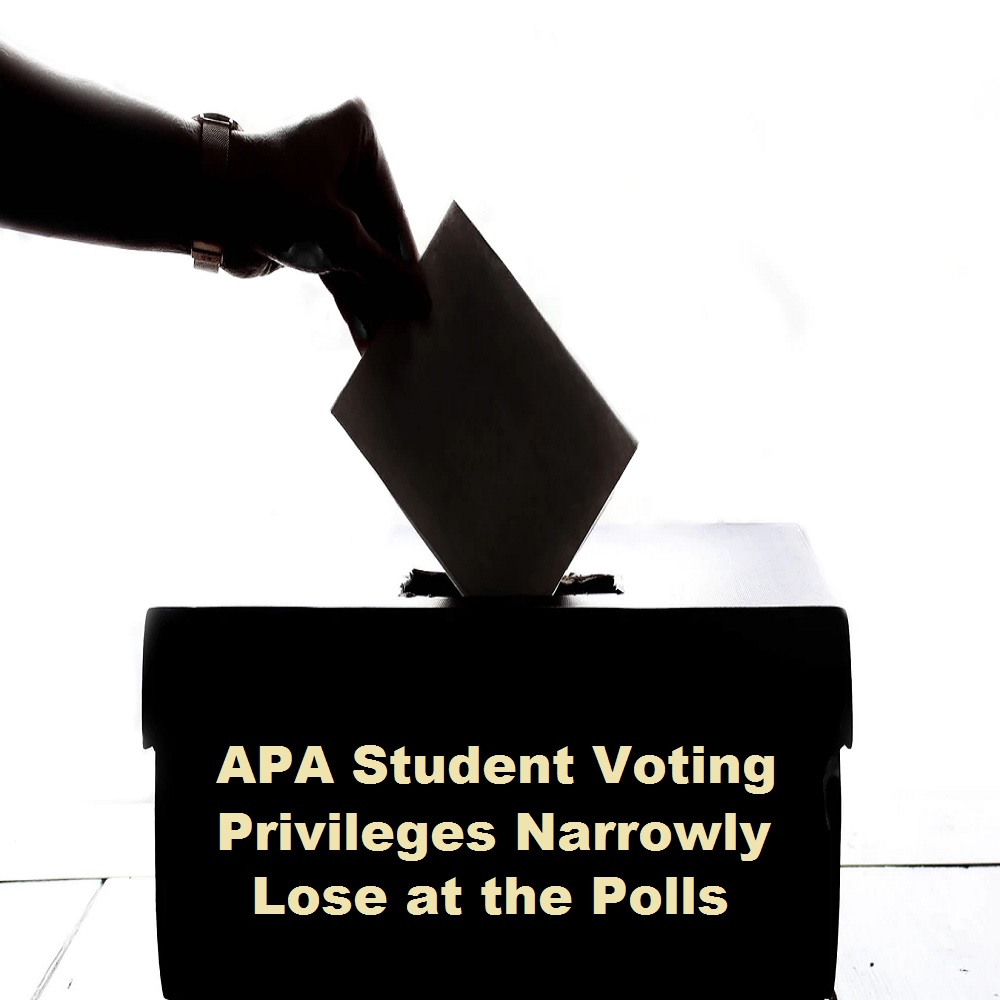By Liz Deibel, APAGS Committee on Sexual Orientation and Gender Diversity Member
(Curious to learn more about this topic? Check out the APAGS upcoming webinar: Impact with Pride: Leveraging Political Resources to Thwart Anti-LGBT Laws. Register here.
The United States can be a really scary place for individuals of sexual orientation and gender diversity, particularly in the current political climate and rise of anti-trans legislation sweeping the country. It can be difficult for Transgender and Gender Nonconforming (TGNC) students to continue going about their daily responsibilities, as well as the clients we are working with. During this stressful time, it is important that both those of us in the LGBTQ+ community and our allies come together to support each other and advocate for equal rights. With each day, more states are attempting to strip the rights of LGBTQ+ people, particularly transgender and nonbinary individuals. If you know of a colleague or classmate who is being affected by the changing legislation, it may be helpful to reach out to them and ask if there is anything you can do to support them.
How to Support TGNC Colleagues?
Graduate school is tough enough as it is without political strife piled on top of everything else. It is important that allies or privileged members of the LGBTQ+ community participate in advocacy to help protect their peers’ rights and safety. Emailing your representatives, signing petitions, and sharing resources can be a quick way to contribute to building protections for transgender and nonbinary community members. Additionally, encouraging professors or program directors to incorporate education on LGBTQ+ psychology can increase the number of gender-affirming psychologists going into the field, leading to more support and strength in numbers in the years to come.
Outside of the professional sphere, it can be really encouraging to simply check in with individuals in your life who identify as LGBTQ+ and ask how they are doing and if they need a supportive friend to talk to. Many queer folks feel frustrated with how little these discussions are occurring outside of LGBTQ+-majority spaces, and showing awareness of what is going on and how much it is affecting people’s mental health can provide validation to their experiences.
How to Support TGNC Clients?
The American Psychological Association has released a list of guidelines for working with LGBTQ+ clients, divided into sexual orientation diversity and gender diversity. Many of these guidelines touch on understanding the differences between biological sex, gender identity, and gender expression. They also acknowledge intersectionality, the way that gender and sexual orientation intersect with other facets of identity such as race, ethnicity, religion, and socioeconomic status. It is essential that psychologists understand the ways in which their implicit biases and the power dynamics in society influence the way of life for TGNC people.
Psychology as a field needs to continue adapting to the changing times to ensure that we can provide affirming and compassionate care. In addition, individuals within our field should continue to address their own unconscious biases and prejudices about gender and sexual orientation to avoid bringing them into the room with a client. At practicum sites, students can initiate conversations about gender-affirming care and ways to ensure the site is adhering to professional guidelines and standards of care for TGNC clients.
In the same way that showing awareness of the situation with colleagues can be validating, it can have the same effect with clients. If the clinician can take the onus to approach the topic, even though it can be uncomfortable to bring up, it removes that additional responsibility from the client’s plate and acknowledges that you see them as a piece of a larger system. Clients do not exist in a vacuum, and being able to address macro-level issues or concerns can instill a feeling of being seen that the client may really need at this time.
References:
- APA Resources for grassroots and state-level advocacy on LGBTQ+ issues
- Blog Guest Post: Hanging Posters Up for a Better Community
- Guidelines for Psychological Practice with Transgender and Gender Nonconforming People
- Standards for Care for the Health of Transgender and Gender Diverse People
- Supporting the Transgender People in Your Life: A Guide to Being a Good Ally
- Guide to Being an Ally to Transgender and Nonbinary Young People
- APA Monitor on Psychology: Navigating thorny topics in therapy
- 5 Ways to be a Culturally Responsive Therapist
Liz Deibel (she/her/hers)
Clinical Psychology Doctoral Student, Roosevelt University

